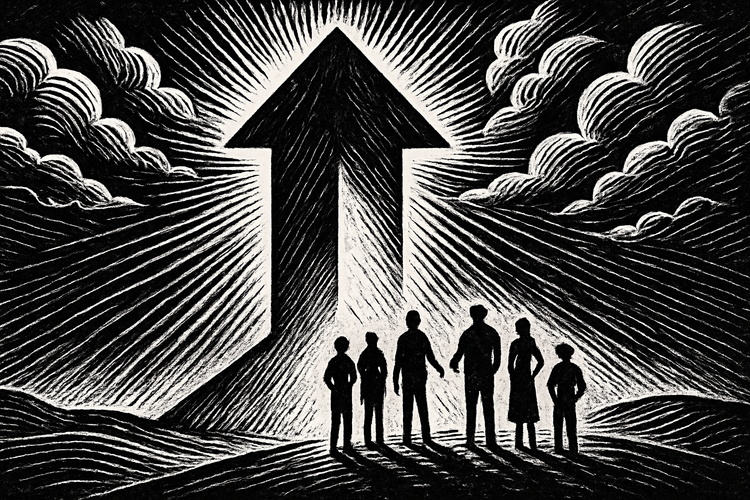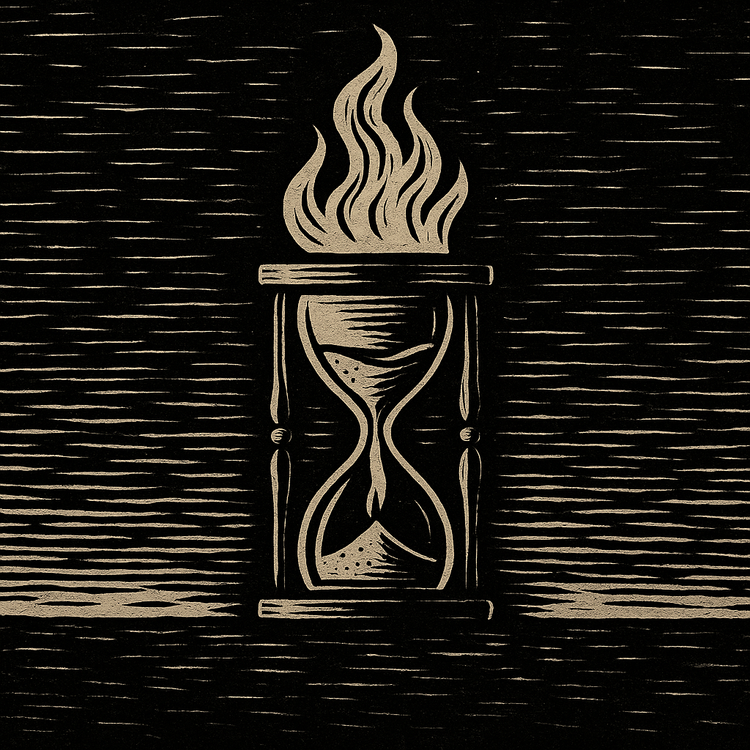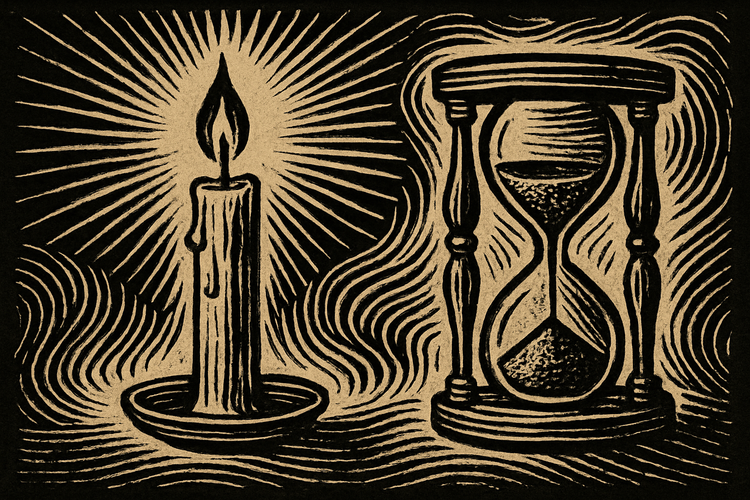The Good Place S1E10 - "Chidi's Choice"

Spoiler Warning: This reflection contains full spoilers for The Good Place, including retrospective insights and thematic allusions. It assumes familiarity with the entire series and is written from the perspective of a rewatch.
The neighborhood is in chaos again—but this time, the disruption isn’t cosmic. It’s emotional. Eleanor, newly unsure of her standing in the Good Place, has fallen for Chidi. Tahani, interpreting his past support as romantic affection, thinks she’s the object of his desire. Jason, oblivious to every possible norm, decides he’s in love with Janet and proposes marriage. And Michael, ever the cheerful saboteur, fans the flames by informing Chidi that his indecision may have disrupted the very architecture of the afterlife. The result is a kind of existential rom-com standoff, in which every character insists on clarity and commitment from the one person least capable of either.
At the center of this swirling absurdity is Chidi himself, a man who agonizes over sandwich orders, now being asked to choose between two women who have both declared their love for him. But this isn’t a love triangle—it’s a philosophical trap. The moment demands action, and Chidi, true to form, folds under the weight of it. In trying to do what’s right, he can’t do anything at all. The dilemma may be comic, but the implications are not. This is the first time we see the full shape of Chidi’s moral flaw. And it isn’t selfishness, cruelty, or deceit. It’s indecision.
To understand Chidi’s crisis, we have to step back—not into his past, but into Aristotle. In Nicomachean Ethics, Aristotle proposes that every virtue is a balance point between two extremes: one of excess, one of deficiency. Courage, for instance, is the golden mean between cowardice and recklessness. Generosity lies between stinginess and wastefulness. True virtue, Aristotle argues, is not found in absolute principles but in appropriate action, tuned to the context. And achieving that balance requires more than intelligence or good intentions—it demands practical wisdom, the ability to choose rightly amid life’s messy particulars.
Chidi is not unvirtuous in the usual sense. He’s not cruel or selfish or corrupt. His downfall is subtler: he’s too virtuous. Or more precisely, he clings so tightly to the idea of being good that he becomes incapable of doing good. What begins as moral seriousness curdles into paralysis. His concern for consequences, fairness, and abstract rightness prevents him from taking any action at all. In Aristotle’s terms, Chidi overshoots the golden mean. His virtue becomes vice—not in excess of feeling, like Eleanor, or of ego, like Tahani, but in excess of thought.
This episode doesn’t just reveal that flaw—it constructs it, piece by piece. Michael ratchets up the pressure, expanding the number of potential soulmates. Eleanor and Tahani both lay claim to Chidi’s affections. And when Chidi’s moral compass begins to spin, it isn’t because he doesn’t care—it’s because he cares too much, about everything, all at once. His failure isn’t selfish. It’s ethical overload.
By the end of the episode, the tension collapses in on itself. Both women retract their love confessions, and Chidi, for all his agonizing, is left with no choice to make at all. It’s a relief, but not a resolution. The damage is done—not just to the relationships, but to the idea that endless deliberation leads to clarity. If anything, Chidi’s indecision has created more chaos than any impulsive mistake might have. The great irony, of course, is that in trying to be good, he fails the very test Aristotle would have set for him: to act rightly, in the right way, at the right time. Not to think endlessly—but to choose.



Comments ()